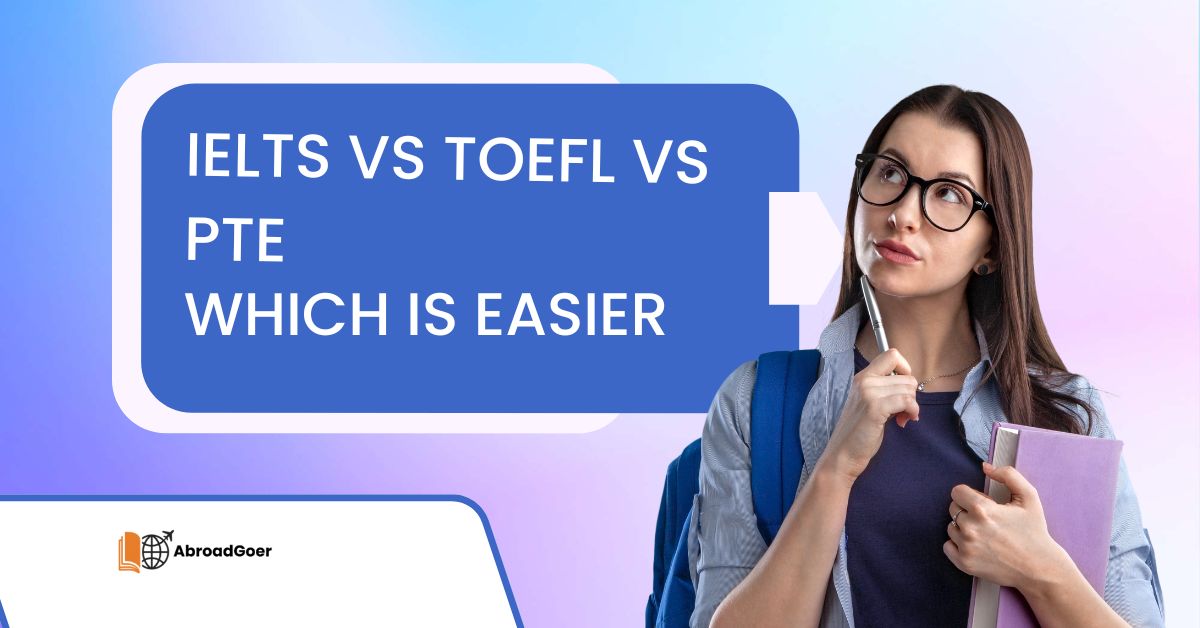TOEFL vs IELTS which is more accepted
TOEFL vs IELTS Which is more accepted? When you start to ponder studying, working, or immigrating to Canada, one of the initial issues to consider is the English language test. Up for discussion from a lot of would-be English immigration testing is: You will get to know that IELTS General Training and TOEFL are 2 of the most chosen tests, not in Pakistan but in the whole world. Similar to IELTS, TOEFL will grant you scores on reading, writing, listening, and speaking. But the reality — and this is according to my experiences when you are planning to move abroad for work or immigration, IELTS sometimes appears to be the ultimate go-to, and trust me, it is.
A lot of Canadian universities need you to prove you are able to speak and write English before applying to their programs. In most cases, to study in Canada, you have to get a required minimum score on IELTS to be considered, but it varies. Universities will typically have their own pre-set minimum TOEFL and IELTS scores for Canada. PTE Core is also an option.
When you’re considering applying to universities abroad, your English language skills will be tested by IELTS, TOEFL, and PTE. It can be paradoxical to decide which test offers more options. It’s worth considering that getting a degree abroad is a lot of work, and that work begins even before you start applying. One of the early tests if you can pass an exam that demonstrates your knowledge of English. TOEFL used to be the dominant test in this market, but now you see some IELTS and PTE too. These assessments are generally eligible for completion for up to two years.
PTE Core or IELTS Exam: Which is Best for Canada Immigration?
When you talk about the TOEFL vs IELTS which is more accepted English language tests for Canadian immigration, IELTS comes to own. TOEFL vs IELTS Which is more accepted It is that one You can take just one section to perform well in the other portions and get a higher overall score on a good note. This is a significant advantage for you. When you choose to enhance your performance, IELTS One Skill Retake enables you to only take the level you need. Both of the tests, TOEFL and PTE Core, mandate you to take all four sections to confirm a proper grade if you wish to increase your overall grade.

It requires more time, energy, and, in return, money. IELTS for a vast immigration acquittal. IELTS is a comfortable and well-trusted adjective test. It’s acknowledged and affirmed by over 10,000 academies and immigration bodies globally. The IELTS test comprises four sections: Reading, Writing, Listening, and Speaking. TOEFL is an alternative,e famous English proficiency test. Traditionally, the US universities and colleges have utilized it to check the language skills of foreign students. It has four main sections, as IELTS; although, all of them take place online, not like IELTS.
The PTE test includes Speaking and Writing in a single section. This test also allows you to enter online, and lately, PTE Academic scores have begun to be recognized by further destinations. IELTS is a Fine Selection for Vast Immigration.n When it comes to showing your English language skills for immigration, including Canada, IELTS trumps. While PTE Academic Core is recognized by its personal body Immigration, Refugees, and Citizenship Canada, it was not as vast.
For example, for a lot of questions, the IELTS measures are more widely accepted by immigration departments in countries such as the UK, Australia, and New Zealand. That wider acceptance also means that if you are applying to several countries for a study or work visa, IELTS is generally more widely recognised. That’s because more than 12,000 organisations around the world, including governments, accept IELTS as proof of your English language skills. I guess mainly because IELTS is recognized by more governments and immigration departments than the other tests.
IELTS for Wider Immigration Acceptance
IELTS for migration
| Category | IELTS for Migration | TOEFL |
|---|---|---|
| Popularity (number of tests taken in 2018) | 3.5 million | 2.3 million |
| Test duration (migration test) | 165 minutes (IELTS General Training) | 195 minutes (TOEFL iBT) |
| Test type | Paper-based and computer-based | Computer-based only |
| Accepted by Canada and the UK immigration departments | Yes | No |
| Speaking test | With a real person who understands different accents | Talking to a computer |
You can trust IELTS scores if you want to live or work abroad
Trusting Your IELTS Score
If you are aiming to live or work abroad, then you’ll need to know your English test results are valid. A lot of countries, including the USA, Canada, Australia, New Zealand, Singapore, and Germany, have a point-based immigration system. For instance, to qualify for a Canadian Permanent Resident visa (PR visa), you typically need to have a certain number of points in Canada. So many of these points are based on your language skills.

The IELTS has always been quite stable. Other tests’ scores fluctuate; IELTS scores have been proven to be calibrated and consistent for over 30 years. This further ensures that your IELTS results are accepted by Canadian immigration and in other countries, offering you peace of mind when planning your move.
IELTS: A Wealth of Free Prep
When it’s time to prepare for your English language test, having the right study materials is essential! The British Council, who administer IELTS, is again exceptional here. They offer you the most free online practice than any other test-prep provider. They’re so great that 93% of people say they’d recommend them to their friends. The British Council has its own dedicated IELTS preparation online called IELTS Ready. It has two main parts. And an IELTS Ready Member is available to you now – even before you’ve booked your test date.
That gives you stuff like preparation videos, practice mock IELTS computer tests, and model answers for the Writing and Speaking. And if you then go on to book your IELTS exam date with the British Council, you receive IELTS Ready Premium – also for free. That’s not all, though; you get much, much more, such as 40 practice IELTS tests, feedback on your Listening and Reading, more model answers, and even personal feedback on your Speaking and Reading from real teachers. It’s like a VIP service to aid you in getting back on your feet faster.
IELTS: Choose Your Test Style
There’s a real advantage to taking IELTS: you can select the format that works better for you. This is in contrast to the PTE Core test, where, along with the Speaking part, you speak into a recording microphone in a room with other test-takers who are talking concurrently, entering or exiting, which also affects the process, or can be somewhat annoying You have the option of taking IELTS on paper, on a computer or as an at-home test. This means you can choose the method that you feel most comfortable with, meaning you relax and get your highest score.

That comfort carries over to the IELTS Speaking test. Instead of having to compete with all the other people in the room to hear, you are talking directly to the friendly examiner, either in person or virtually via a live video call. Once again, the aim is to try and get you to feel more comfortable with your Speaking test so you can concentrate and do your best.
How Your Test is Scored: Human or Machine?
The PTE Core exam has computer-assisted scoring as well. This ensures that no human is involved in marking. While examiners must mark IELTS. “Some people may feel that the computer grading is fair; people don’t like you if you have an accent.The automated system is not necessarily better.”
A computer might not fully capture the nuance of how you’re speaking or understand you at a human level like another person might. It can influence scores in the Reading and Speaking sections, too. On the flip side, IELTS examiners – who are employees of the British Council – receive specific training for listening, and are trained to understand a range of different accents. They are also said to work against making test-takers feel comfortable. Such as, They’re likely to challenge you with questions about everyday situations, which may make you more confident when you answer. And second, with computer marking, no allowance is made for variation of answers; there is only 1 one right answer.
Comparing Result Speed: PTE Core and IELTS
If speed is your priority when it comes to receiving your test scores, the PTE Core wins hands down. You usually receive your results in only two days.
IELTS, on the other hand, has a few options, and these come with their preparation time frames. If you are sitting a computer-delivered IELTS (CD IELTS) test, you can preview your results online within 3-5 days after your test date. But should you decide to take your IELTS exam on paper, it does take far longer – approximately 13 days. One advantage of the paper-based IELTS is that you’ll receive up to 5 Test Result Forms free of charge in hard-copy format for your records.







